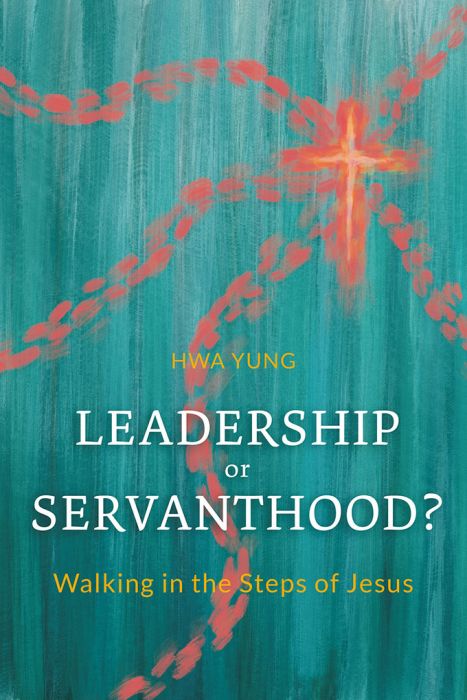Langham recently published Leadership or Servanthood? Walking in the Steps of Jesus by Hwa Yung, bishop emeritus of the Methodist Church in Malaysia. Here he explains the reasoning behind his new book. (Extract from langhamliterature.org)
Growing up with a strict father who had been a senior military officer in China during the pre-Communist era meant that academic success and driving ambition were instilled into me from a young age. At university there was only one goal, that of becoming a successful research scientist. But God had other plans.
It was at university when my Christian faith began to deepen. For the first time in my life I understood clearly the meaning of the call to follow Jesus, to self-denial and dying to one’s ambitions and dreams (Mark 8:34; John 12:24–26). That was the beginning of a long spiritual battle against ambition and pride in my life, a battle that does not end even when a person surrenders to God’s call to full-time vocational ministry.
Unsanctified ambitions
This is particularly true when we are called into positions of prominence and leadership in the church or some Christian organisation. Our unsanctified ambitions will assert themselves in various ugly ways, especially when the rules of the game are often defined by competition and public success.
The ever-present temptation to “steal God’s glory” lurks somewhere. And often our supporters are among our worst enemies – because they flatter us and thereby effectively encourage us to develop messianic complexes about ourselves.
How do we counter these pressures? First, we need to resolve from the very beginning to fight pride and personal ambition through dying to self and seeking constantly the path of humility. Second, setting aside time to cultivate a life of prayer is integral.
Unworthy servants
Third, stop thinking of yourself as the leader without whom nothing moves, for that is a sure recipe for megalomania! It is good to remind ourselves of Jesus’s parable about the “Unworthy Servant.” When we have done everything that our position requires of us, even if we are highly successful, we are still unworthy servants who “have only done what was our duty” (Luke 17:10).
So, “Why this book?” It all began with my own pilgrimage as a Christian and my struggles to set aside personal ambition in response to Christ’s call to ministry. Much of the book is based not on my successes but on my struggles and failures. But what troubled me deeply along the way was that so many were striving to be leaders and to be known as leaders.
However, how many true servants do we find at the top of the pile? These leaders are being cheered on by the thousands of Christian publications and seminars on how to become successful leaders, even though the Bible’s constant emphasis is on being faithful and obedient servants. Are we are reading the same Bible?
Serious leadership crisis

In recent years we have witnessed the flood of revelations concerning leadership failures throughout the global church. With the constant drumbeat about leadership in the modern church patterned on secular models, are we largely blinded to the serious leadership crisis facing the church today? If there is one central focus in my book, it is the call to return to servanthood (not servant leadership) as the heart of Christian ministry.
Finally, my concern is also missiological. Sometime around 1980, the center of gravity of the global church moved out of the West into the Majority World, where two-thirds of all Christians in the world live today. Despite the amazing growth of the churches in the Majority World in the past century, discipleship and leadership are major challenges confronting us.
This is a challenge facing the whole global church today, but especially the younger churches in Africa, Asia, Latin America, and the MENA (Middle East and North Africa) region. The shift of the center of gravity of the global church into the Majority World confers a greater degree of responsibility upon these churches. And only if those of us in these churches adequately address the challenges of discipleship, and recover the spirit of true servanthood, can our churches fully mature into what God intends them to be. Only then will we be able to embrace fully our God-given responsibilities for this generation.


